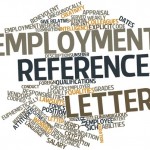
Widgetized Section
Go to Admin » Appearance » Widgets » and move Gabfire Widget: Social into that MastheadOverlay zone
Maximizing The Reference Checking Process
What to do when they ask for your references
 The employment meeting went extremely well. The interviewer was impressed with your abilities; you answered the questions superbly; and you were able to develop an excellent rapport with the interviewer and other staff at the company.
The employment meeting went extremely well. The interviewer was impressed with your abilities; you answered the questions superbly; and you were able to develop an excellent rapport with the interviewer and other staff at the company.
So, now just the reference checking process, BUT, unfortunately you did not make it to the following stage. Why not? Everything went so well. What possibly could have gone wrong?
How often do I hear similar comments from candidates who are at an absolute loss as to why after such great interviews, their applications have been denied.
Have you ever thought that perhaps your reference may be letting you down?
The general procedure a candidate follows in locating and providing references to support their application is either to:
- provide a list of contactable references on their resumes at the time they send their initial application, or
- provide contact names after being requested to do so at the interview without any prior consideration
Are these two methods basically what you are currently doing in your career campaign? If so, you need to be aware that both of these methods can be detrimental to your job search.
Unless the application has specifically requested reference details to be included in your initial application do not forward or include details on your resume. As you may be forwarding your resume in response to hundreds of job advertisements this could result in your references receiving numerous calls, which could become quite annoying and ultimately, damaging to your campaign. You want to retain control over who you provide these details to, and presenting a reference list after you have had an opportunity to interview with the potential employer will be far more beneficial.
During the interview you may realize that this is not the position you originally thought it was, or realize that your personal values and beliefs would be challenged if you were to become employed with the organization, and therefore there is no real need to provide reference contact details. Your references will not be unnecessarily contacted, affording their valuable time and energy for a position that you are not interested in.
Let’s see how we can enhance the entire process of qualifying and contacting appropriate references in order to maximize the reference checking process.
Once you locate a position you would like to apply for, you need to decide who would be the best person to offer as a reference. A human resource staff member who has not worked with you may only be able to confirm dates you worked with them, but not provide details about your performance. A department head may not be able to offer much more information either, however a direct supervisor or colleague who you worked with can present details on your performance, contributions and overall standing in the workplace.
Sadly, we can lose contact with previous employers, supervisors or colleagues, however if you are still in contact with them, or would be able to contact them, then this would be to your advantage. It is far more beneficial to use someone who is able to confirm your abilities within a work context rather than, say, a close friend, relative or neighbor; however for some job seekers this is almost impossible. If either of the above situations ring true for you, there are a number of strategies you can consider:
Consider providing the name of your lecturer or tutor if you have recently completed professional development or courses. The course studied would presumably be relevant to the position you are targeting, so your tutor could confirm your academic achievements and knowledge in this area. Volunteer work for a local community organization may allow you to provide the name of the President or other member of the board or committee. A professional or other high-standing member of the community who has known you for many years and can verify your honesty and integrity. These people may include a minister, a doctor or lawyer.
Consider putting forward the name of a colleague with whom you have worked if you are unable to locate a previous manager. A colleague would certainly be able to confirm your overall professionalism and experience within the workplace. Perhaps you may be able to provide the name of your direct supervisor, or even a supervisor from another department who has had some dealings with you on a professional level.
A major supplier with whom you have previously dealt could vouch for your professionalism and integrity.
A subordinate or a member of a team that you were responsible for could also be considered and could vouch for your leadership and management style.
Contact a number of your customers/clients to see if they would be willing to act as a reference. Who better than a previous or existing customer to vouch for your commitment and high standard of work ethic?
Once you have decided on the best person to offer as a reference, you need to:
- Contact that person to ask permission to provide their contact details and to advise them of your current campaign;
- Verify and confirm:
- current contact number;
- email address; and
- appropriate/contact time preferred.
Another strategy would be to refresh your reference’s memory about previous projects and contributions by supplying them with a copy of:
- Your current resume
- Relevant experience and results achieved with the reference’s organization
- Overview of your career goals and aspirations so that the reference can provide information pertinent to that goal
This will allow your reference to gain an understanding of your skill set and what it is you are targeting.
When preparing your references contact list, don’t just state the basic details such as the name and contact details, but provide some background details as to how you know this reference and the information they can confirm. Perhaps a succinct list of outstanding contributions that this reference can qualify would be beneficial too. Ensure that the document is formatted professionally and in the similar style (i.e. fonts etc) that your resume has been developed, as consistency in formatting and professional presentation is also important.
If the position and company still sound exciting after the initial interview and you would like to be considered in the next round, try to confirm who will be contacting your references and the approximate timing. This will allow you to touch base (either by phone or email) with your references and advise them of the forthcoming reference check.
At the completion of your career campaign, after receiving and accepting a firm job offer, do not forget to send a thank you card to each of your references to show your appreciation and to advise them of your success.
All the best!





You must be logged in to post a comment Login